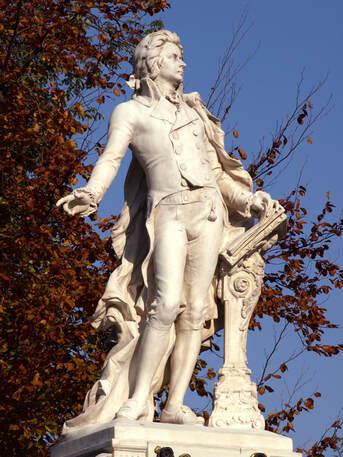 Fortepiano Fortepiano The Classical era of music, spanning from the mid-18th century to the early 19th century, is a remarkable period in the history of Western classical music. During this time, the music of the Baroque period transitioned to a simpler, more homophonic texture, and many new forms of instrumental music emerged, such as the symphony, the sonata, and the concerto. Two of the most renowned composers of the Classical era were Wolfgang Amadeus Mozart and Ludwig van Beethoven. Mozart's music is known for its elegance and emotional depth, while Beethoven's compositions reflect his struggle with personal difficulties and the turbulent times in which he lived. Both composers made significant contributions to the development of Western classical music, and their works continue to be widely performed and celebrated today. The Classical era also saw the invention of new instruments, such as the clarinet, which added richness and depth to orchestral music. The string quartet, consisting of two violins, a viola, and a cello, also emerged during this era and remains one of the most popular forms of chamber music. Additionally, the piano became a staple of the classical repertoire, with composers like Mozart and Beethoven writing numerous piano sonatas, concertos, and chamber music pieces. Another significant development in classical music during this era was the use of the fortepiano, a precursor to the modern piano. The fortepiano had a softer, more expressive sound that allowed for greater dynamic range and sensitivity in performance. This led to a new playing style, with performers using more delicate and subtle touches to create a nuanced and expressive sound. The Classical era's innovations and forms continue to have a lasting impact on Western classical music. The music of Mozart and Beethoven remains widely admired and performed, and their influence can be seen in the works of later composers like Brahms, Chopin, and Schumann. The Classical era of music was a remarkable period of innovation and development in Western classical music. Through the works of Mozart and Beethoven, the invention of new instruments, and the emergence of new forms of instrumental music, this era left a significant mark on the musical landscape that continues to be celebrated and studied to this day. Comments are closed.
|
�
AuthorBrian Trumble is an English teacher and lifelong writer. He plays saxophone, bassoon, and piano and is excited to partner with Plum Rose Publishing to teach and lead the next generation of musicians! CategoriesArchives
April 2023
|
|
Contact Us:
By Email: info@plumrosepublishing.com By Mail: PO Box 6917 Hudson, FL 34674 |
We use PayPal: PayPal accepts Debit or Credit Card
Price plus tax and shipping and handling
Price plus tax and shipping and handling
company id 100



 RSS Feed
RSS Feed